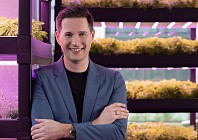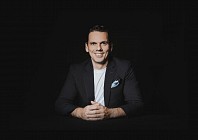Mention the name Alain Ducasse and you’re sure to draw an intake of breath. Whether you’re a food aficionado or not, Ducasse is synonymous with gourmet gastronomy. His name twinkles with Michelin stars, from Alain Ducasse at The Dorchester in London to Le Louis XV at Hôtel de Paris, Monte-Carlo.
In November 2012, the Ducasse empire expanded into the Middle East, with the opening of IDAM restaurant in Doha’s Museum of Islamic Art — his 26th restaurant. But Monsieur Ducasse’s ventures don’t stop at restaurants. The Ducasse name also extends to luxury hotels and inns: La Bastide de Moustiers and l’Hostellerie de l’Abbaye de la Celle in Provence and l’Andana in Tuscany.
Despite all these professional achievements (including becoming the first chef to earn three Michelin stars at restaurants in three different cities), and being one of the most revered personalities of the culinary world, Ducasse remains humble about his success. From his simple, rural upbringing to being associated with some of the world’s most luxurious destinations, Ducasse discusses the journey that brought him global success and reveals the life lessons learnt along the way with a wisdom that can only come from someone who has had years of experience at the top of his game.
Can you remember your earliest culinary memory?
It dates back to my childhood on my family farm. My grandmother was cooking for the whole family and I still remember the taste of her recipes, especially the roasted chicken she used to prepare on Sundays.
So, your passion for cooking formed organically from an early age?
It was an early call. In my early childhood, I always dreamed of becoming either a chef, an architect or a traveller. As it turns out, I realised all the three of them: I became a chef who travels and develops restaurants.
What was the first meal you cooked as a professional chef?
It dates back to the mid-seventies, when I was at Michel Guérard’s [as an apprentice cook]. He let me create some of his “lean cuisine” recipes and the first one I did was a carrot cake.

Image courtesy Pierre Monetta and David Bordes
IDAM is your first venture in the Middle East — what made you decide on Doha and specifically the Museum of Islamic Art (MIA)?
The Middle East is an exceptional region, and a representation of one of my core values, which is blending. The mixture of cultures in this region is a treasure to the creative mind. Doha is a city that is growing at a fast pace and one that is quickly becoming a beacon for its celebration of tradition while maintaining the perfect balance with modernity. The MIA is a particularly special location. The height of Islam’s culture and heritage is represented through the exceptional architecture and design of the building. IDAM reflects the melting of our two regions in the 21st century.
Are there any plans to expand to other cities of the Middle East sometime in the near future?
Let me savour the pleasure of IDAM before thinking about something new!
Where in the world was the best meal you’ve ever had?
I’m not a fan of such rankings. I had a lot of memorable meals, in various places. But a great meal is not only a food matter — it’s also with whom you are sharing the meal, your mood and the moment.

Tell us about your most unusual food experience.
Well, I see some very unusual stuff when I go wandering on Far-Eastern open markets… One memory does come to my mind. Last year, I invited chef Da Dong to Paris for a special lunch. Chef Da Dong is a very great chef, based in Beijing. For his demonstration, he prepared geoduck. This is a mollusc found on North Pacific shores, which can weigh two or three kilos and be almost one metre long. The Chinese call it ‘elephant trunk clam’, which well reflects its size and shape. It is not very well known in Europe; those who knew it were making strange faces when they read the name on the menu.
Where is your favourite foodie destination?
When it comes to destinations, I can tell you something: there is no country on earth that is not interesting in terms of food.
What does a typical day sound like for Alain Ducasse?
What is great is that there’s nothing like a typical day. I do have a diary yet I always manage to remain as free as I can. Firstly, because you can’t have new and fresh ideas if you spend your life in meetings. Secondly, because I want to be constantly available for the unexpected. I must admit that my days are rather long; nonetheless, I am always available for the unexpected.
How involved are you in the operation of your country inns in France and Italy?
Like all my activities, I consider myself as an art director: I give the overall vision, the ‘editorial line’, and I check that this vision is properly put in place. In the case of the country inns, I would not necessarily speak about design, but I do hunt for antiques to furnish them. Of course, I oversee food and beverage and service as well, but my teams are the ones who are making it perfect everyday. And I visit them very regularly to be sure everything is running smoothly — and also because they are my favourite places for having a break.
What is your definition of luxury?
Luxury is the abundance of time and space to give room to happiness.
Will you be looking to open more Ducasse inns in the near future?
I always keep my eyes and my ears wide open for new opportunities.
You’ve no doubt clocked up quite a few frequent-flyer miles. What’s the best piece of travel advice you’ve ever received?
Never organise a too-tight schedule. A traveller’s worst enemy is connections.
One item you never travel without?
An extra case of luggage to bring back objects I fall in love with — books on design, food or architecture, or pieces of tableware.
What factor do you think is key to longevity in the cut-throat culinary world? How do you stay dynamic in the business?
Trying to be trendy is the surest way to become outdated. The cuisine I make is the one I love. I make it honestly and sincerely, and I make it for my guests: they are my primary source of invention and thus fuel my dynamism.
How are you planning to move the Alain Ducasse brand forward in the coming years?
By transmitting knowledge. Not for the sake of putting my name forward, but because youth is where the future of cooking is.











